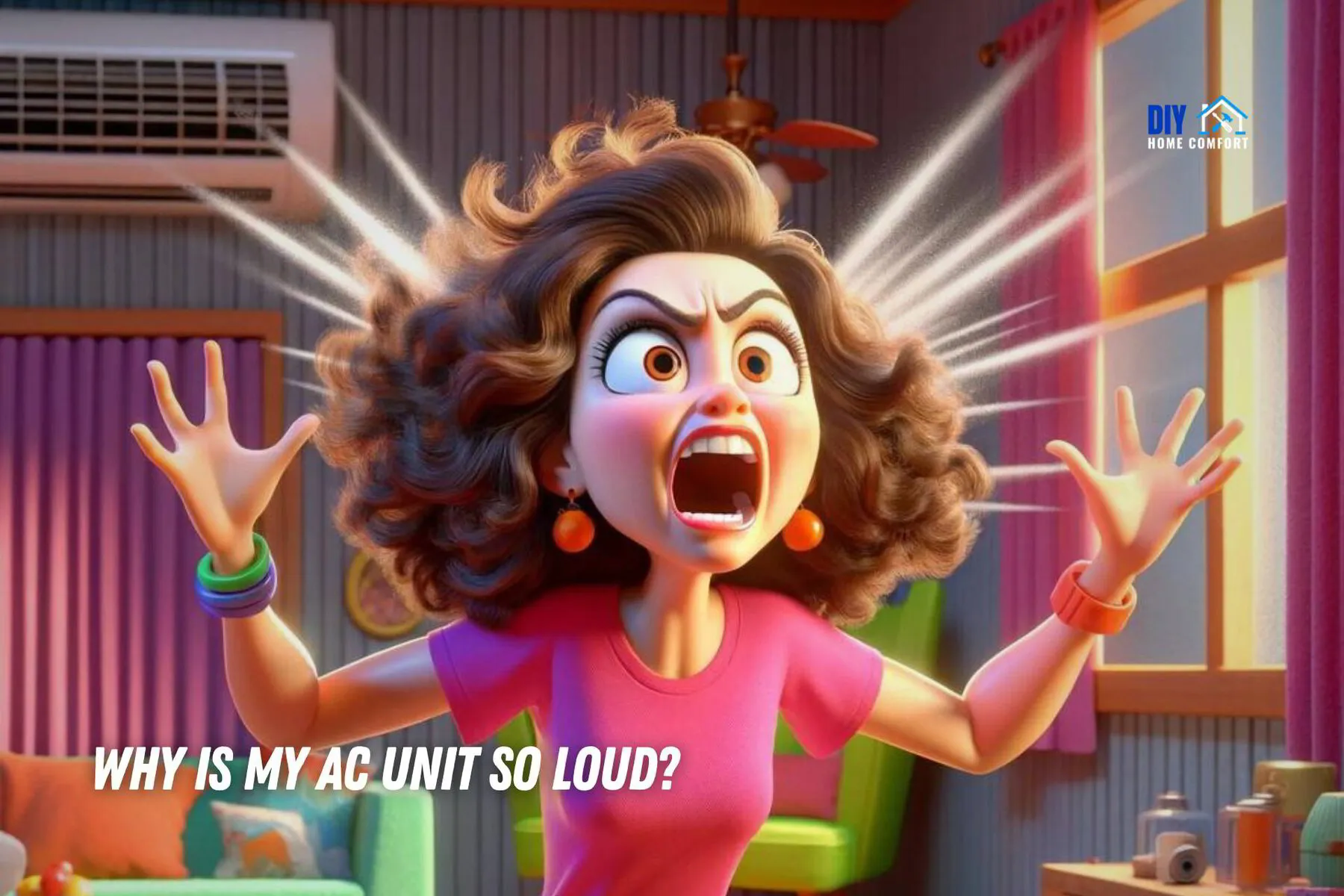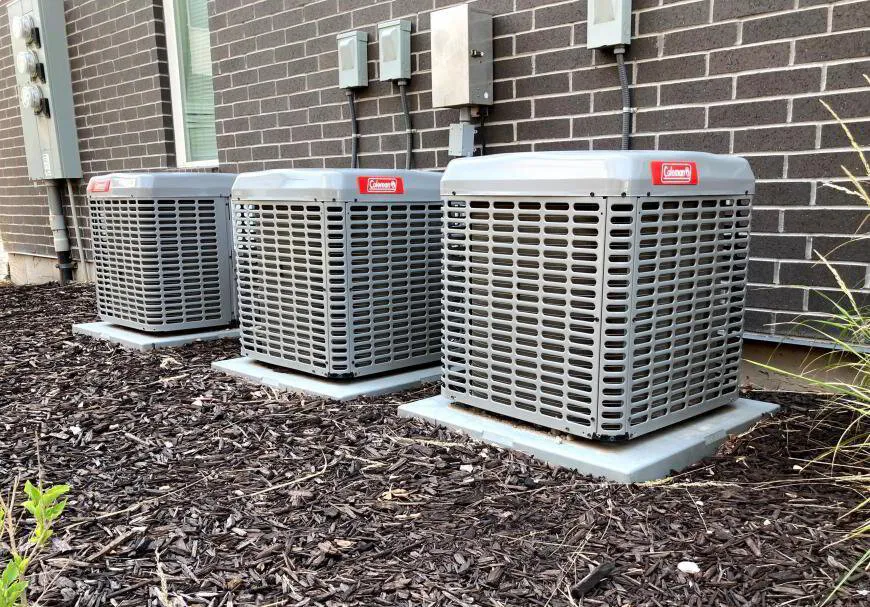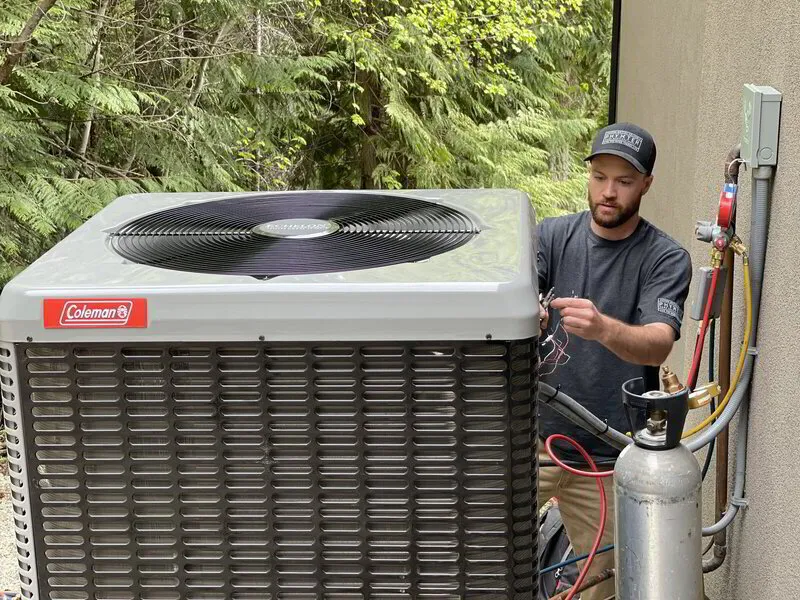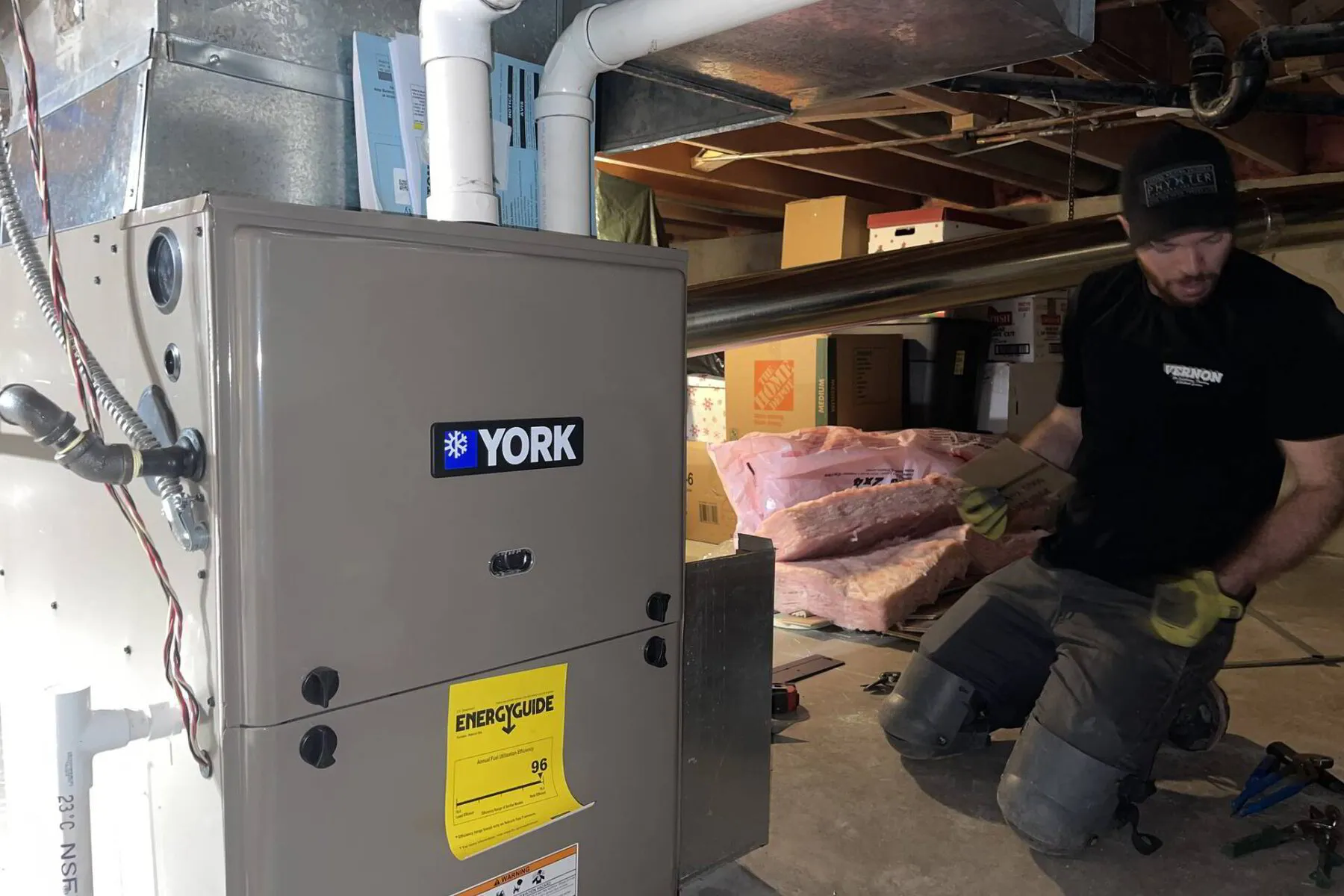How to Fix a Noisy Air Conditioner
Many homeowners experience the disruptive issue of a noisy air conditioner, which can significantly affect home comfort and energy efficiency. This blog post explores the common causes behind loud AC units and provides practical solutions to ensure quieter operation.
Understanding and addressing these noises is crucial for improving the sound of your living environment and enhancing the efficiency of your cooling system. Join us as we delve into the reasons your AC might be so loud and learn how to achieve peaceful cooling in your home.
📘 Key Takeaways
- A loud buzzing from your air conditioner typically indicates mechanical issues, such as a malfunctioning fan motor or electrical faults in the compressor. It could also stem from loose isolation feet meant to dampen vibrations. Regular inspection and tightening of these components can reduce or eliminate the noise.
- The maintenance and noise reduction strategies used for air conditioners, including securing loose parts and regular inspections, are equally applicable to heat pumps, as both systems utilize similar components.
Common Causes of AC Noises
Loose Parts and Misalignments
Loose parts and misalignments in an air conditioner, such as screws, fan components, and isolation feet on the outdoor unit, are common culprits behind the rattling or buzzing noises that disrupt the tranquility of your home.
These noises occur when parts are not tightly secured, allowing them to vibrate against each other or the unit’s frame, producing audible disturbances. To check for such issues, inspect your air conditioning unit for any loose screws or components, ensure everything is properly aligned and tightened, and specifically check the condition of the isolation feet, which help dampen vibrations.
Regular maintenance is essential to prevent these problems. It involves periodic inspections and tightening of parts that can loosen over time due to normal operation vibrations. This proactive approach not only reduces noise but also extends the lifespan of your air conditioning unit.
Ductwork Issues
Issues in ductwork, such as leaks, improper sizing, or poor design of your HVAC system, can cause a range of noises, including whooshing or whistling sounds, in air conditioners. These sounds often arise when air escapes through gaps, or airflow becomes restricted due to narrow or poorly aligned ducts.
Homeowners should inspect their ductwork for signs of damage, unusual gaps, or misalignments. Consistent noise locations can also clue homeowners to possible duct issues.
Professional duct assessments can be very beneficial, as they not only identify and resolve these noise issues but also improve the overall efficiency of the air conditioning system, ensuring optimal performance and reduced energy costs.
Fan and Compressor Problems
Fan blades, blower motor malfunctions, compressor issues, and refrigerant leaks can all contribute to various noises from an air conditioner, such as grinding, screeching, humming, or hissing.
Grinding often points to bearing problems in motors, screeching may indicate issues with belts or the motor itself, humming could suggest electrical problems in the compressor, and a hissing noise typically signals a refrigerant leak within the system.
Before consulting a professional, homeowners should perform preliminary checks: inspect fan blades for damage or misalignment, listen for abnormal sounds from the blower motor, ensure the compressor isn’t vibrating excessively, and check for signs of refrigerant leaks like oil stains or persistent hissing sound.
Addressing these concerns promptly can prevent further damage and avoid more extensive and costly repairs.
DIY Solutions for Reducing Noise
Tightening and Adjustments
To reduce minor AC noises through DIY fixes, focus on tightening and securing key components:
- Turn off the Power: Always ensure your AC unit is powered off before attempting repairs to avoid injury.
- Tighten Loose Screws: Use a screwdriver to tighten any visible screws on the exterior and interior panels. Loose screws can cause rattling sounds as the unit operates.
- Secure Fan Blades: Check the blades for looseness or misalignment. If they wobble, tighten the central hub with an appropriate wrench. Ensure the blades are clean and debris-free, which can also cause noise.
- Inspect and Adjust Belts: If your AC has belts, check for any slack or wear. Tighten or replace them if necessary to prevent screeching sounds.
- Regular Inspections: Incorporate these checks into your regular AC maintenance routine to catch issues before they become serious.
Following these steps can help maintain your AC unit's quiet operation and prevent future loud noises from developing. Regular maintenance is key to ensuring your unit remains efficient and noise-free.
Cleaning and Maintenance
Regular cleaning and maintenance of your air conditioner are crucial for preventing noise and ensuring efficient operation. Start by cleaning or replacing the air filters every one to three months, depending on usage and environmental factors like dust levels.
A clean air filter allows for smooth airflow and reduces strain on the motor, preventing loud humming noise or rattling noises. Additionally, clean the fan blades to remove any debris that could cause imbalance and noise.
Professionally service your AC annually to check for issues like refrigerant levels and electrical connections that could lead to noise if not properly maintained. Adhering to a routine maintenance schedule helps extend the lifespan of your unit and maintains its performance and quiet operation.
When to Call a Professional
When encountering complex mechanical issues or safety concerns with your air conditioner, such as persistent screeching or rattling noise grinding noises or the activation of safety switches, it is advisable to call a professional HVAC technician.
These signs often indicate serious problems like compressor failure or electrical faults, which require specialized tools and knowledge to address safely. Additionally, if your AC emits a burning smell or strange noises that suddenly worsen, these are critical signals that professional intervention is necessary to prevent further damage or potential safety risks.
Enhancing Longevity and Performance of Your AC
Optimizing the performance and lifespan of your air conditioner's compressor involves several key practices.
- Proper Installation: Ensures the air conditioner is the right size and type for your home, which is critical for efficient operation and minimizing noise.
- Regular Maintenance: Includes tasks such as cleaning filters and checking for leaks, which keep the unit running smoothly and prevent small issues from becoming larger problems.
- Timely Repairs: Addressing issues promptly avoids long-term damage and maintains the unit's efficiency.
- Choosing the Right AC: Selecting an air conditioner that fits your space's specific needs is crucial to avoid inefficiencies and excessive wear.
- Professional Installation and Maintenance: Investing in professional services ensures correct installation and routine maintenance, which extends the unit's lifespan, enhances performance, and ensures quieter operation.
Adhering to these practices ensures that your air conditioning system remains efficient, quiet, and reliable over the years.
Conclusion
This article explored the common causes of noisy air conditioners and provided actionable solutions to mitigate these issues. From ensuring proper installation and regular maintenance to identifying when professional help is required, we covered the essential steps homeowners can take to reduce AC noise and enhance the unit's performance and longevity.
DIY Home Comfort is your trusted source for expert advice on home maintenance. With our extensive experience and commitment to providing high-quality, practical information, we aim to help you maintain a comfortable and efficient home environment.
We encourage you to explore our other informative articles on AC systems for more insights on air conditioning repair, maintenance, and other topics. Visit our articles section today to discover more tips and tricks to keep your home at its best.
Scott Harding
Scott is the main author of DIY Home Comfort. He's also an experienced HVAC technician that enjoys home renovation and spending time with his family. You can find out more about him here.




